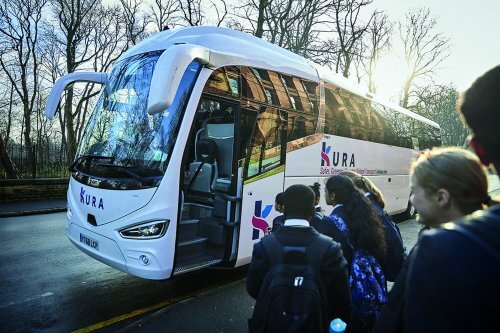
Education and transport management platform provider Kura has assembled a working group to engage the Department for Transport (DfT), lobbying to update accessibility legislation which it says puts thousands of schools at risk of sanctions.
The group, which comprises more than 100 schools, transport operators and consultants, has been formed to seek either legal reform or a compliance extension to incoming Public Service Vehicle Accessibility Regulations (PSVAR).
After July, without an extension, it will be a criminal offence under the Equality Act 2010 to use a non-compliant vehicle for home-to-school journeys, with legal advice suggesting that this criminal liability could apply not just to the operator, but also to the organisation which procures the transport – in this context the school or potentially parents in the case of parent-organised routes.
The legislation came into effect in 2000 with a staggered implementation based on vehicle age and, until the middle of 2019, was not believed by the industry to be applicable to home-to-school services where the passengers were known in advance.
There have been a series of exemptions of the legislation due to the inability of the industry to become compliant in a short time and the latest extension is due to expire on 31 July 2021. The legislation stipulates that all fee-charging shared vehicles, designed to carry more than 22 passengers and providing a local or scheduled service, must meet accessibility standards.
Many schools across the UK have suggested that they will be unable to meet this compliance deadline, due to reasons such as lack of available compliant vehicles, cost pressures and restrictions to the use of existing stops when having to use a wheelchair lift which protrudes from the side of the vehicle.
Furthermore, over a year of almost no income has meant that most coach operators simply don’t have the working capital to be able to retrofit their fleets. Subsequently, thousands of schools may need to transition to smaller vehicles, source alternative transport, or even stop offering home-to-school transport services altogether, potentially leaving pupils stranded, Kura said.
To highlight this serious issue and instigate change, the company has been engaged in discussions with the DfT on PSVAR legislation, and campaigning for either a further extension for PSVAR compliance to allow schools time to prepare, or amendments to the scope of the legislation to give what it called a ‘common-sense proportional application’ of the PSVAR for schools and operators.
The firm said it has also been in discussion with its existing school partners for some time to help ensure they are compliant before the deadline and are planning to share insights on a PSVAR webinar taking place in April.
Commenting on the formation of the group, Chris Coles, Operations Director at Kura said: “It is critically important that school transport services are made accessible to all who need them and everyone from schools to operators are committed to providing this, however a blanket approach which applies the legislation to all school vehicles is far beyond what is necessary to meet the needs of the children, which is clearly the intent of the legislation.
“At Kura, we have worked with hundreds of schools across the UK to help manage their school transport. From our experience, we can state with confidence that for every school to outfit their entire fleets to be fully accessible, when all passengers are known in advance, is a sledgehammer solution that does not take into account the needs of schools, pupils or the transport industry. We are continuing to engage with the DfT to lobby for a more reasoned approach that will be in the best interests of all in the long run.”
Kura has produced a whitepaper on PSVAR compliance options for schools, which can be found at ridekura.com/2021/02/psvar-compliance-deadline-approaching/

